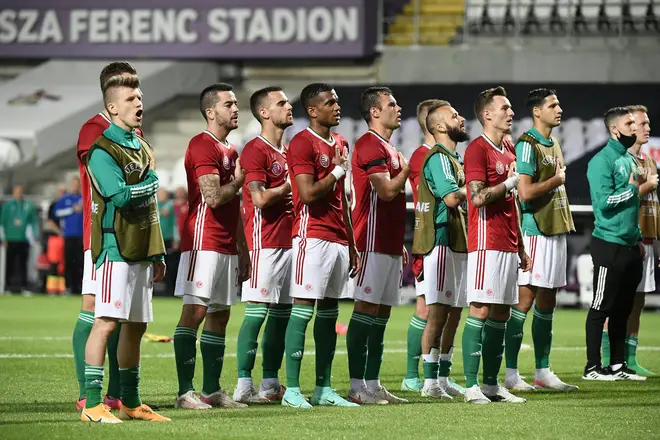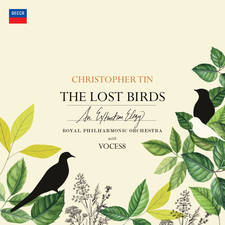What are the lyrics to Hungary’s national anthem ‘Himnusz’, and why was it banned from sporting events?
15 June 2021, 14:01 | Updated: 15 June 2021, 15:36

Hungary’s poignant national prayer, known by its first line ‘God bless the Hungarians’, was once banned from being played at sporting events.
‘Himnusz’ became the de facto national anthem of the Kingdom of Hungary pretty much as soon as it was composed in 1844, when the country was still part of the Austro-Hungarian Empire.
Hungarian poet Ferenc Kölcsey wrote the original poem in 1823, and in 1844 his words were set to music by Romantic composer Ferenc Erkel, who won a nationwide competition to write music for the Himnusz.
And so began its long, political journey. After the First World War, Hungary’s Minister of Culture issued a decree stating that “according to the prayerful nature of the anthem, it can only be given on serious occasions”. Accordingly, the anthem was thereafter banned from being played at sporting events.
During the communist regime, the anthem was played without text. There was even a move to adopt a new national song, with non-religious text and a more optimistic narrative. But in the end, the Himnusz stayed and in 1989 it was finally, officially, adopted as the song of the Third Hungarian Republic.
Now, long gone are the days where the Himnusz was banned at sports matches. The poem is a mammoth eight verses long, but as with most national anthems, usually only the first verse is performed in public. So, don’t expect a full choral symphony from Hungary’s players at UEFA Euro 2020.
Read more: We asked a music expert to rank the greatest national anthems

Hungary
What are the lyrics to Hungary’s national anthem?
Verse 1
Isten, áldd meg a magyart
Jó kedvvel, bőséggel,
Nyújts feléje védő kart,
Ha küzd ellenséggel;
Bal sors akit régen tép,
Hozz rá víg esztendőt,
Megbűnhődte már e nép
A múltat s jövendőt!
Verse 2
Őseinket felhozád
Kárpát szent bércére,
Általad nyert szép hazát
Bendegúznak vére.
S merre zúgnak habjai
Tiszának, Dunának,
Árpád hős magzatjai
Felvirágozának.
Verse 3
Értünk Kunság mezein
Ért kalászt lengettél,
Tokaj szőlővesszein
Nektárt csepegtettél.
Zászlónk gyakran plántálád
Vad török sáncára,
S nyögte Mátyás bús hadát
Bécsnek büszke vára.
Verse 4
Hajh, de bűneink miatt
Gyúlt harag kebledben,
S elsújtád villámidat
Dörgő fellegedben,
Most rabló mongol nyilát
Zúgattad felettünk,
Majd töröktől rabigát
Vállainkra vettünk.
Verse 5
Hányszor zengett ajkain
Ozmán vad népének
Vert hadunk csonthalmain
Győzedelmi ének!
Hányszor támadt tenfiad
Szép hazám, kebledre,
S lettél magzatod miatt
Magzatod hamvvedre!
Verse 6
Bújt az üldözött, s felé
Kard nyúlt barlangjában,
Szerte nézett s nem lelé
Honját a hazában,
Bércre hág és völgybe száll,
Bú s kétség mellette,
Vérözön lábainál,
S lángtenger fölette.
Verse 7
Vár állott, most kőhalom,
Kedv s öröm röpkedtek,
Halálhörgés, siralom
Zajlik már helyettek.
S ah, szabadság nem virúl
A holtnak véréből,
Kínzó rabság könnye hull
Árvánk hő szeméből!
Verse 8
Szánd meg Isten a magyart
Kit vészek hányának,
Nyújts feléje védő kart
Tengerén kínjának.
Bal sors akit régen tép,
Hozz rá víg esztendőt,
Megbűnhődte már e nép
A múltat s jövendőt!
Read more: Watch star tenor Andrea Bocelli perform emotional ‘Nessun dorma’ at Euro Opening Ceremony

What do the lyrics mean in English?
Verse 1
O God, bless the nation of Hungary
With your grace and bounty
Extend over it your guarding arm
During strife with its enemies
Long torn by ill fate
Bring upon it a time of relief
This nation has suffered for all sins
Of the past and of the future!
Verse 2
You brought our ancestors up
Over the Carpathians’ holy peaks
By You was won a beautiful homeland
For Bendeguz’s sons
And wherever flow the rivers of
The Tisza and the Danube
Árpád our hero’s descendants
Will root and bloom.
Verse 3
For us on the plains of the Kuns
You ripened the wheat
In the grape fields of Tokaj
You dripped sweet nectar
Our flag you often planted
On the wild Turk’s earthworks
And under Mátyás’ grave army whimpered
Vienna’s “proud fort.”
Verse 4
Ah, but for our sins
Anger gathered in Your bosom
And You struck with Your lightning
From Your thundering clouds
Now the plundering Mongols’ arrows
You swarmed over us
Then the Turks’ slave yoke
We took upon our shoulders.
Verse 5
How often came from the mouths
Of Osman’s barbarian nation
Over the corpses of our defeated army
A victory song!
How often did your own son aggress
My homeland, upon your breast,
And you became because of your own sons
Your own sons’ funeral urn!
Verse 6
The fugitive hid, and towards him
The sword reached into his cave
Looking everywhere he could not find
His home in his homeland
Climbs the mountain, descends the valley
Sadness and despair his companions
Sea of blood beneath his feet
Ocean of flame above.
Verse 7
Castle stood, now a heap of stones
Happiness and joy fluttered,
Groans of death, weeping
Now sound in their place.
And Ah! Freedom does not bloom
From the blood of the dead,
Torturous slavery’s tears fall
From the burning eyes of the orphans!
Verse 8
Pity, O Lord, the Hungarians
Who are tossed by waves of danger
Extend over it your guarding arm
On the sea of its misery
Long torn by ill fate
Bring upon it a time of relief
They who have suffered for all sins
Of the past and of the future!






















